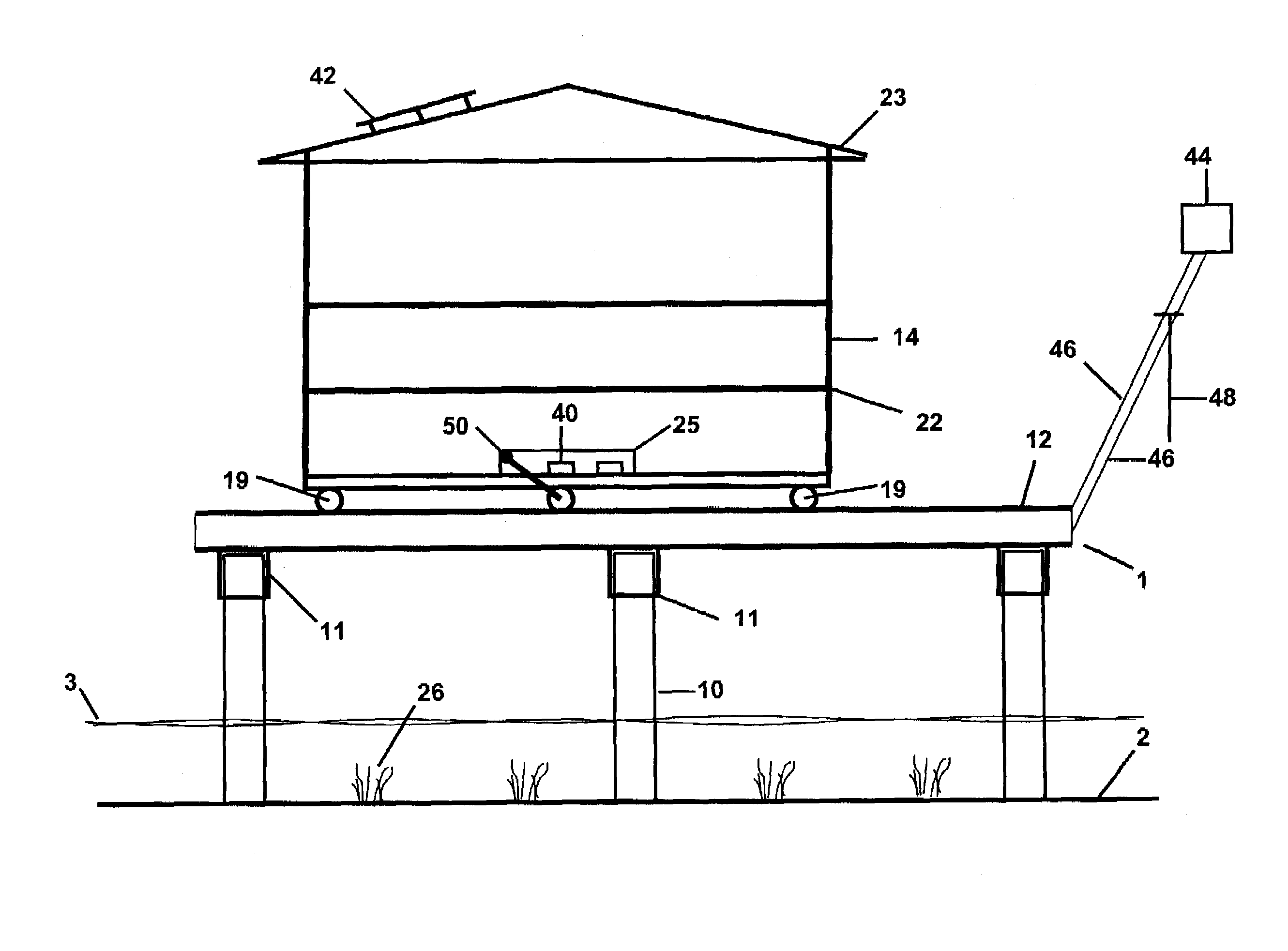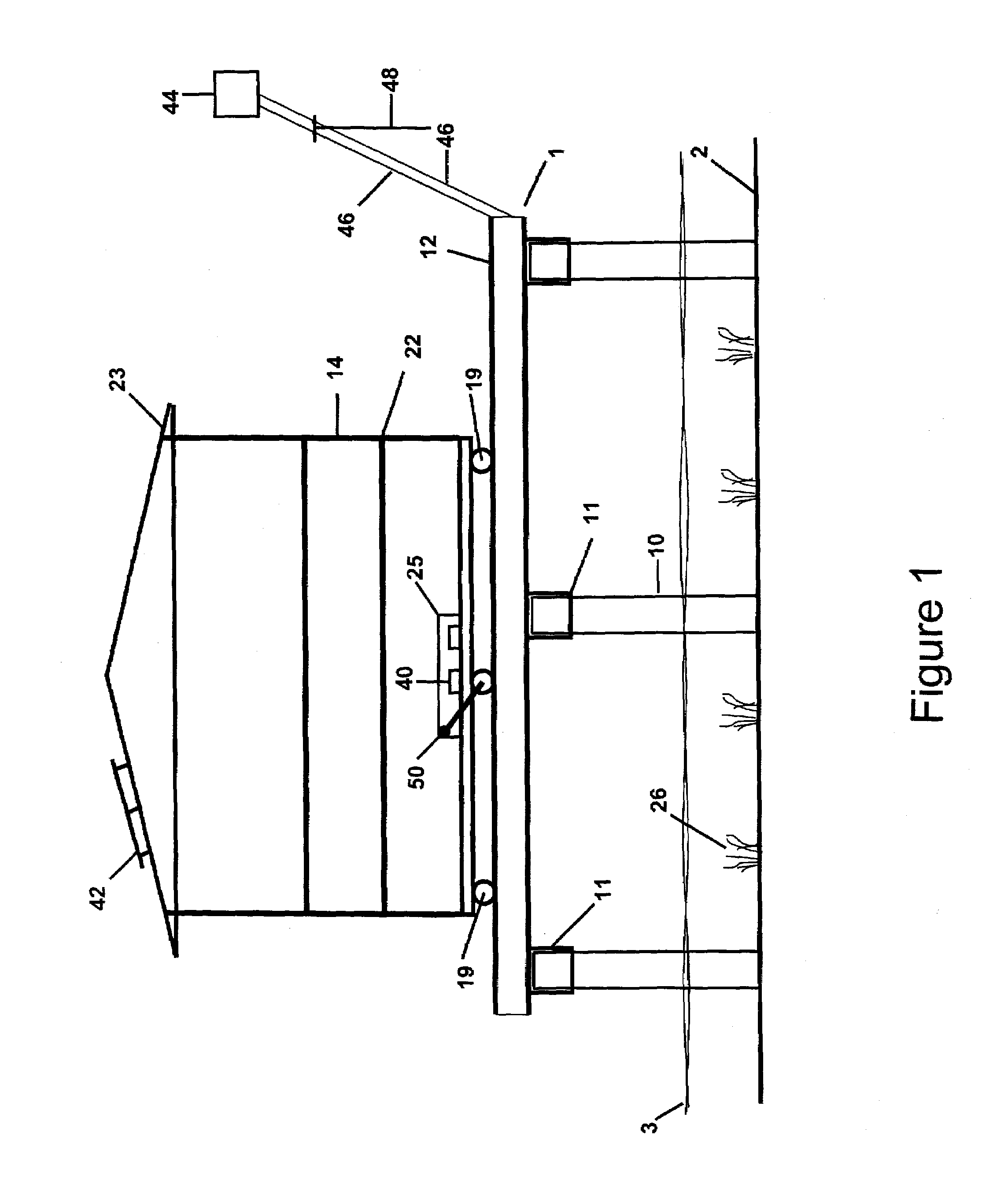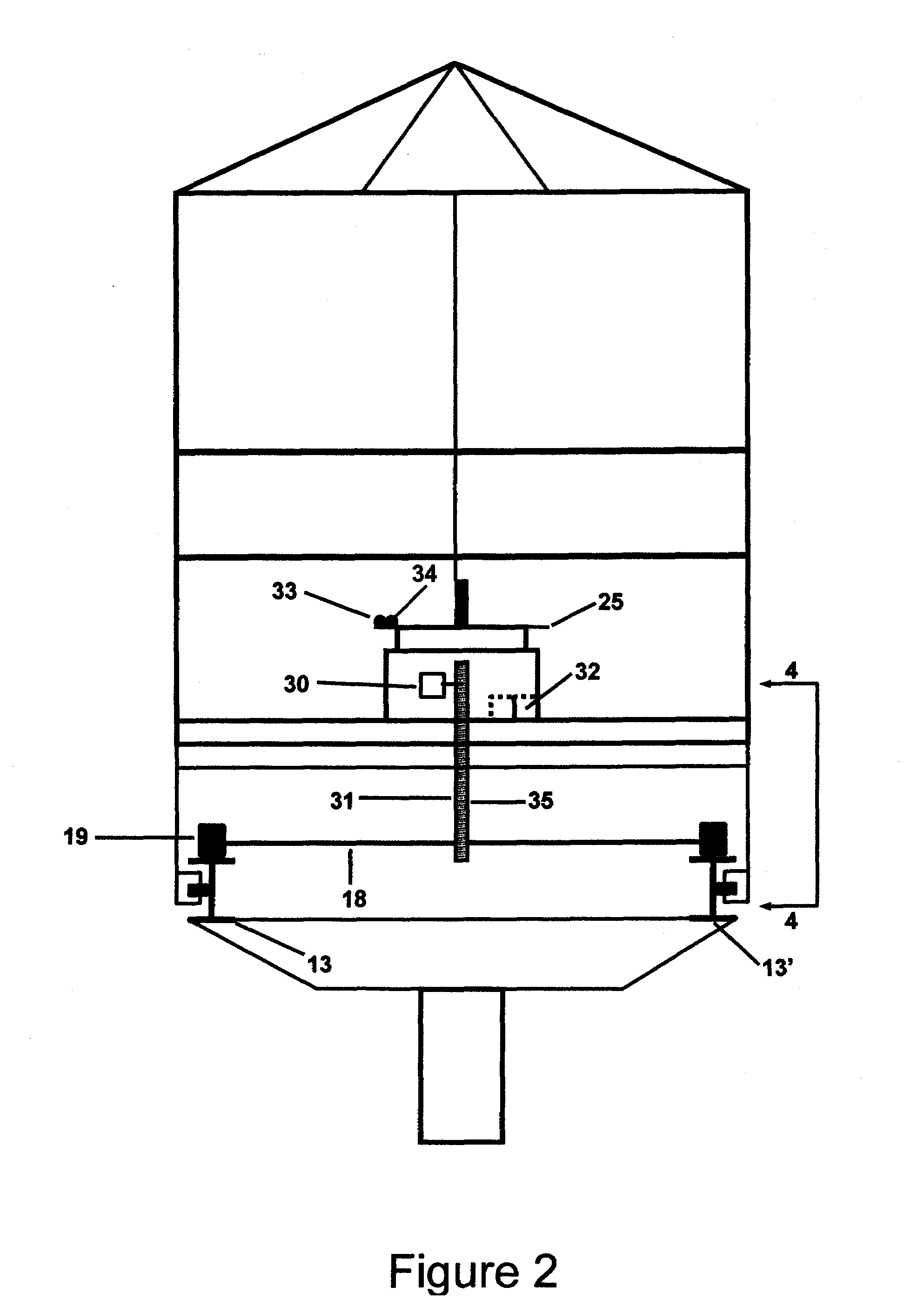Marine pier system
a pier system and pier technology, applied in the direction of rope railways, transportation and packaging, ways, etc., can solve the problems of breaking away the decking, causing damage, and destroying the decking, etc., and achieving the effect of reducing the risk of damag
- Summary
- Abstract
- Description
- Claims
- Application Information
AI Technical Summary
Benefits of technology
Problems solved by technology
Method used
Image
Examples
Embodiment Construction
[0030]While the present invention is susceptible of embodiment in various forms, there is shown in the drawings and will hereinafter be described a presently preferred embodiment with the understanding that the present disclosure is to be considered an exemplification of the invention and is not intended to limit the invention to the specific embodiments illustrated.
[0031]Referring generally to the Figures, the present invention is illustrated by use of a pier 1 having a payload transport device 14 to transport people and equipment along the pier. The transport device can assimilate conventional decking on a pier and further include side rails 17, seats 21 and a roof 23. However, the main difference is that the transport device is movable along a payload rail system 12 in which the preferred embodiment is a self-propelled carriage wherein a drive system 25, such as a battery powered electric motor 30.
[0032]The support system for the carrier is provided by a plurality of pilings 10 a...
PUM
 Login to View More
Login to View More Abstract
Description
Claims
Application Information
 Login to View More
Login to View More - R&D
- Intellectual Property
- Life Sciences
- Materials
- Tech Scout
- Unparalleled Data Quality
- Higher Quality Content
- 60% Fewer Hallucinations
Browse by: Latest US Patents, China's latest patents, Technical Efficacy Thesaurus, Application Domain, Technology Topic, Popular Technical Reports.
© 2025 PatSnap. All rights reserved.Legal|Privacy policy|Modern Slavery Act Transparency Statement|Sitemap|About US| Contact US: help@patsnap.com



